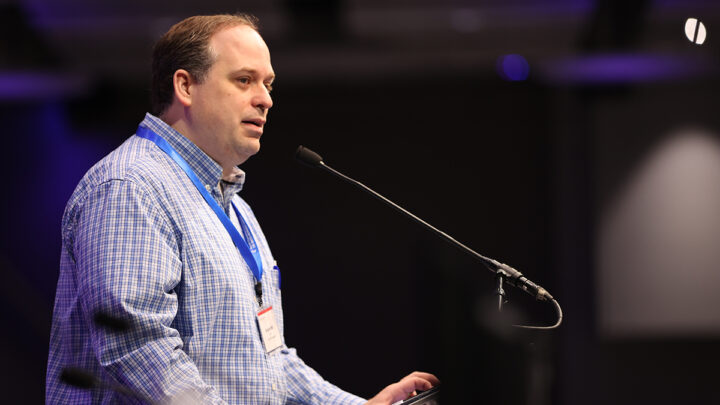The Resolutions Committee is chaired by Rev. Ben Wolf, with Rev. Laura Wittman serving as vice chair. Rev. Mary Frances McClure is the secretary. Rev. Wolf reminded the body that the resolutions are open for debate and vote due to the body rejecting proposed rule changes when the conference opened on Friday.
Resolution 1: Creation Care Teams and Local Churches
The resolution encourages churches to follow their scriptural and disciplinary call to creation care through practice and advocacy. The Resolutions Committee recommended the resolution for debate. John Reese spoke on behalf of the Creation Care team in support of the resolution. The Conference has formed District teams and hopes church teams will create a network to facilitate communications, worship, and ideas about creation care in churches and communities. This resolution passed.
Resolution 2: Affirming 2022 Jurisdictional Resolutions
The resolution calls on the body to affirm three resolutions passed by the Southeastern Jurisdiction in 2022.
- Leading with Integrity, asking that those who intend to disaffiliate step down from leadership roles in all areas of the church
- Justice and Empowerment for LGBTQIA+, calling the conference to affirm, empower, and protect LGBTQIA+ people in the life of the church
- Support for a US Regional Conference, calling for structural parity across the US and global regions of the UMC, allowing for flexibility in ministry for each region’s particular context
This resolution passed.
The resolutions passed on Saturday will be posted at nccumc.org/ac2023/resolutions.

